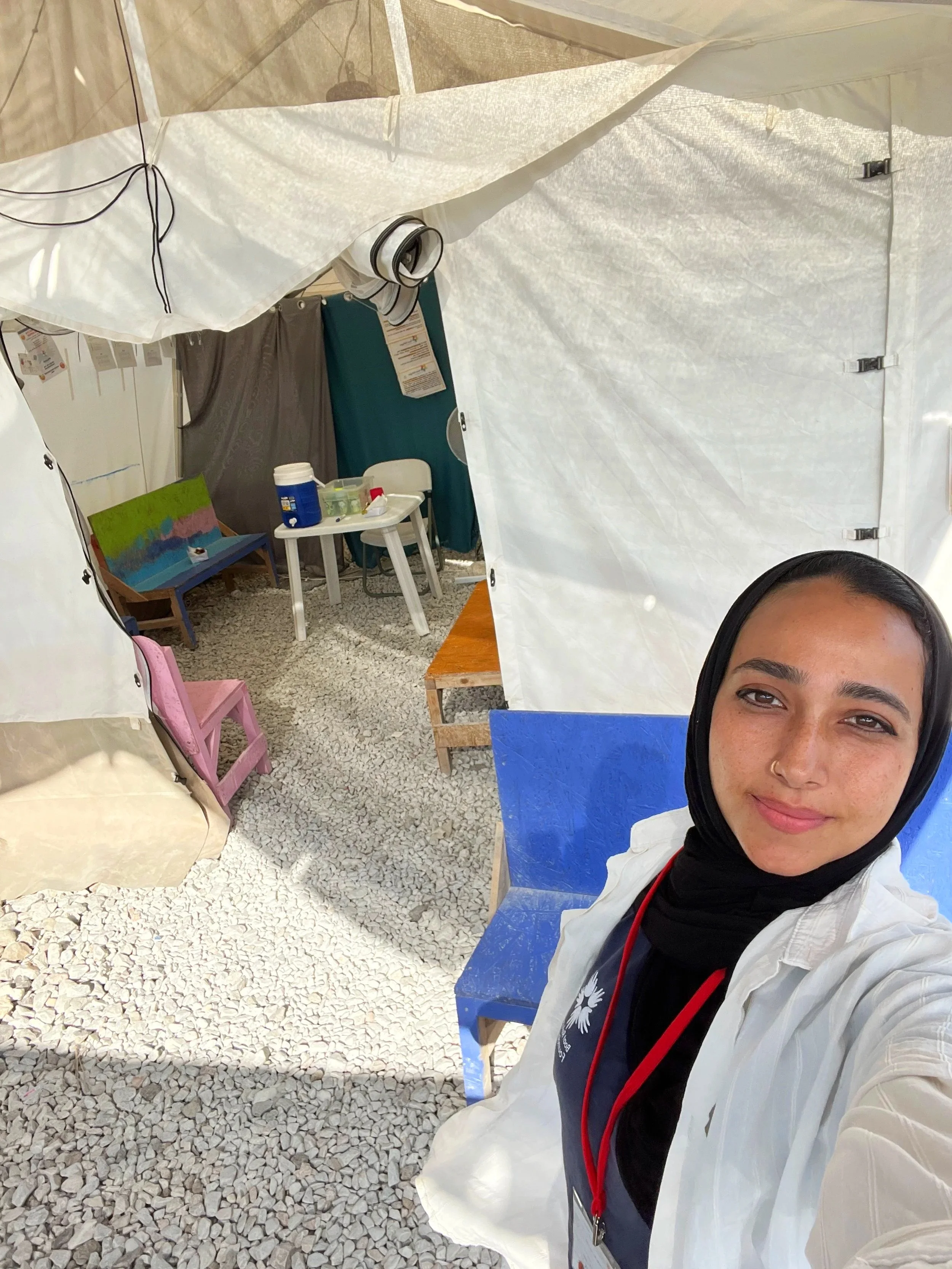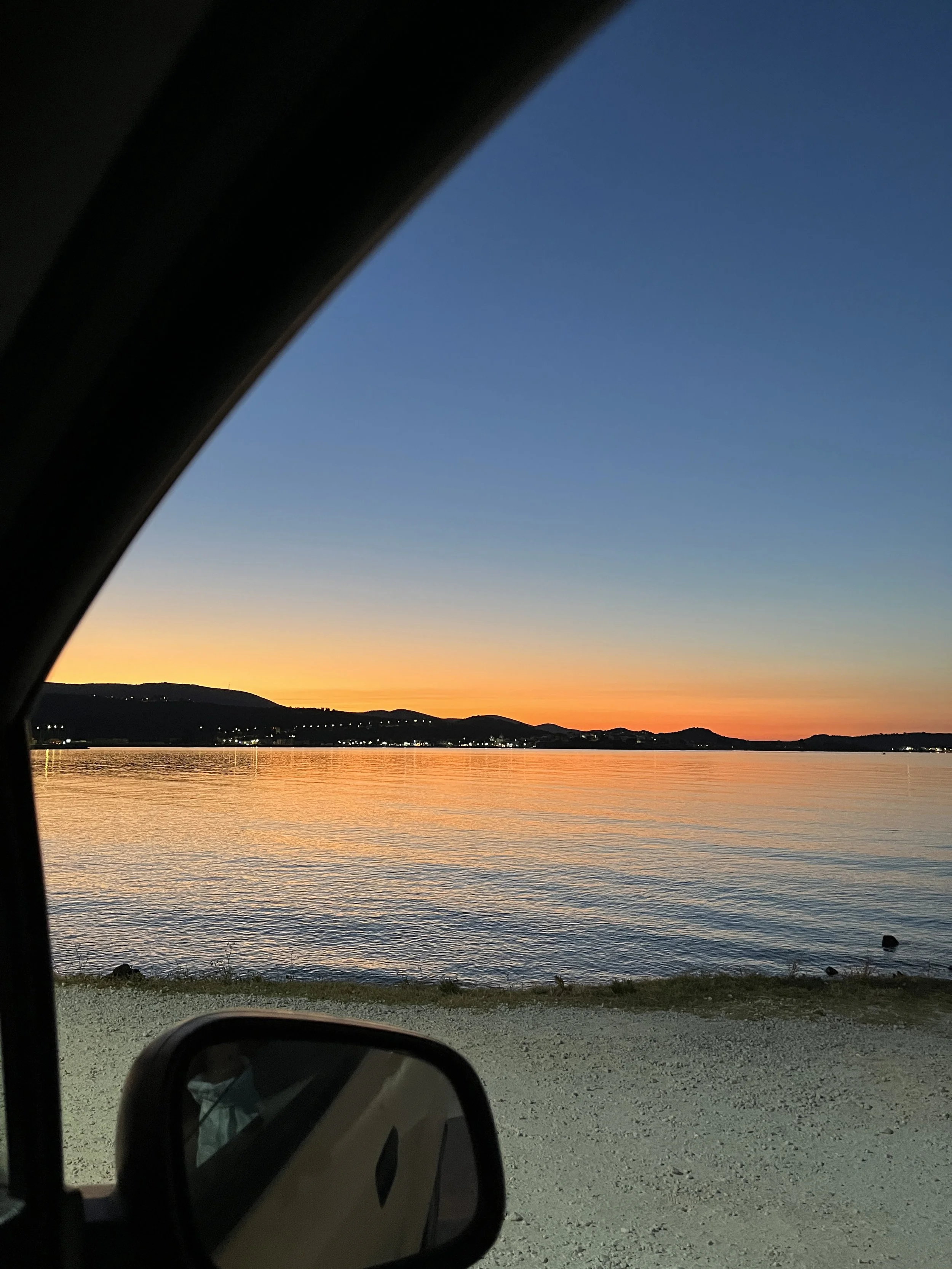Volunteering in Lesvos: Mental Health Support for Refugees
Our clinic space inside the camp
Life in Limbo
Last summer I volunteered as a Mental Health and Psychosocial Support (MHPSS) clinician with the Boat Refugee Foundation on the island of Lesvos in Greece. The camp there was home to people who had fled danger, often crossing the sea from Turkey to Greece. These journeys were long, risky, and many ended in tragedy.
For many, arriving at the camp brought hope because it meant they were one step closer to safety. But it also came with a difficult realization that the journey was not yet over. Life in the camp was temporary and uncertain, filled with new challenges.
Conditions were hard. Food was limited, shelters were often crowded, and people had to cope with both the heat and the cold. There was too much time and not enough to do. Many carried deep emotional wounds, grief, and exhaustion. Pain could be seen everywhere.
Even so, people found ways to keep going. They shared stories, meals, laughter, prayers, and small acts of kindness. Strength showed up quietly in the simple things that kept life moving forward despite the hardship.
Representation Matters
One thing that stood out to me was how many people in the camp felt happy and comforted to see a professional who looked like them. As a Muslim woman of colour, I was often approached by people who wanted to connect because they saw something familiar in me.
For some, it was sharing a common language. For others, it was recognizing a shared culture or faith. Often, my presence alone helped build trust even before I said a word. These moments showed me how important representation is and how powerful culturally informed care can be.
Graffiti on the streets of Lesvos illustrating political dynamics
Bearing Witness and Acknowledging Injustice
It would not be honest to talk about Lesvos without naming the systems that keep suffering in place. The camp was not only a space of personal pain but also a reflection of structural injustice. People faced long waits for asylum processing, little access to support, and ongoing safety risks. Their suffering did not come only from the past but also from the way the world continued to respond to them.
The inequities were clear. International volunteers arrived with passports, freedom, and resources, while the people they served were trapped in uncertainty, often for years. Cultural disconnection was unavoidable when service providers did not reflect the communities they supported. The legacy of colonial systems was still present.
This awareness is not about blame but about honesty. Even with good intentions, humanitarian work happens within systems that are much larger than any one person. This reminded me of something central to my work as a systemic therapist: trauma does not exist in isolation. People’s pain is shaped by personal experiences as well as by the structures that surround them. Acknowledging this helps us validate their reality and offer care that truly meets them where they are.
Moments of Beauty and Hope
Amid the harshness of camp life, there were moments of quiet beauty. I remember one family who had created a small garden outside their tent. They had brought plants and arranged them with care, making their space feel alive and peaceful. In the heat and dust, those green leaves stood out as a sign of life, dignity, and hope in a place marked by impermanence. Their effort to nurture something living stayed with me and reminded me that creativity and care can survive even in hardship.
Being Human
At the heart of it, people wanted something very simple: to be seen, to be heard, and to know that they mattered. Sometimes all I could offer was a conversation, a listening ear, or a few words of encouragement.
For young people who were completely alone, it was about recognizing their fear, affirming their humanity, and offering a moment of safety in an uncertain world. It was about reminding them that they were not forgotten. I learned that even these short moments of connection made a difference and offered hope to keep going.
Pomegranate tree on the island
Planting Seeds
There is a verse in the Qur’an that says, “A good word is like a good tree, whose roots are firm and whose branches reach the sky.” A kind word may seem small, but like a seed, it can grow into something lasting.
Even brief conversations can take root. I hope that some of my words or gestures brought comfort, but what I know for sure is that the love, creativity, and resilience of the people I met left a lasting mark on me.
Lessons on Trauma and Healing
My time in Lesvos changed how I understand trauma and healing. Trauma is real, but it is not the whole story. I saw pain everywhere, but I also saw joy, connection, and strength. Healing involves holding both truths at once.
Culture is not a background detail, it is a source of strength. People drew on their faith, traditions, and values to cope and find meaning. This reminded me that therapy must be culturally aware and humble, because people’s ways of healing are deeply rooted in who they are.
Even short-term support matters. Many people I met were constantly moving, but even a single safe conversation can make a meaningful difference.
Why Volunteer?
Volunteering is important to me because of my values of community, empowering people, collective healing, social justice, giving back, and my faith. Being a good Muslim, for me, means showing up for others in genuine ways. I cannot separate myself as a person from myself as a therapist. Before being a good therapist, I care about being a good human.
Carl Jung once said, “Know all the theories, master all the techniques, but as you touch a human soul, be just another human soul.”
My last shift on the camp, before returning home
Returning Home
Coming back to Canada, I’ve held onto these lessons. My time in Lesvos was humbling. It deepened my belief that mental health care is not a luxury, but a human right. It showed me again how deeply we need each other, and how healing is not only individual, but collective. I left knowing I was just a small part of people’s journeys. But perhaps, like the tree in the Qur’an, some words or moments will take root and remain. And I know for certain that the love, resilience, and lessons I received will stay with me for a lifetime.
Sea view from the refugee camp in Lesvos





